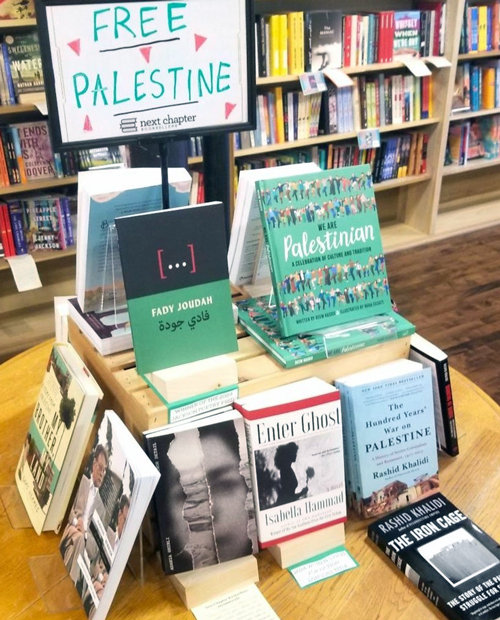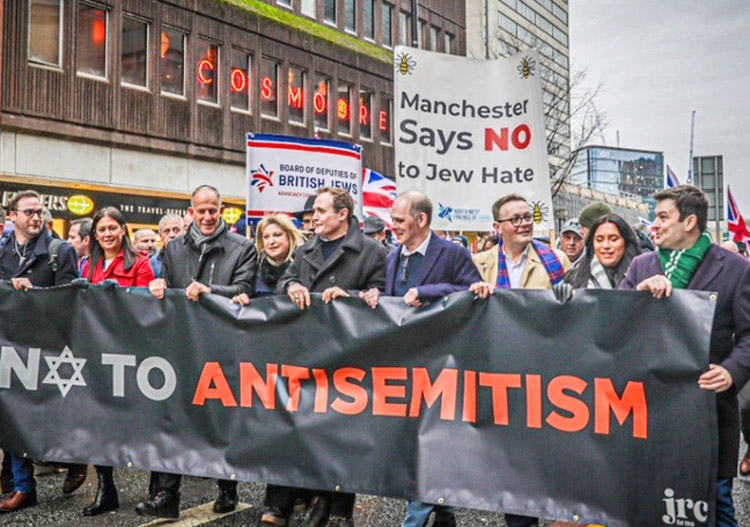The Socialist Workers Party defends freedom of speech, art and culture. Defending culture, free-ranging debate and the right of journalists and artists to state the truth as they see it is crucial for working people to chart a road forward amid the deepening social convulsions and wars of the imperialist epoch. That is why the campaign by the Palestine Festival of Literature to organize an international boycott of Israeli cultural institutions must be opposed.
The Palestine Festival of Literature — funded by a range of foundations in the U.S. and abroad and big capitalist interests based in the United Arab Emirates — says it has the signatures of over 6,000 “writers, publishers, literary festival workers, and other books workers” on its open letter titled, “Refusing Complicity in Israel’s Literary Institutions.”
The letter states that the signers refuse to “work with Israeli cultural institutions that are complicit or have remained silent observers of the overwhelming oppression of Palestinians. We will not cooperate with Israeli institutions, including publishers, festivals, literary institutions and publications.” Among the signers promoting the boycott are some well-known authors, including Jhumpa Lahiri, Arundhati Roy, Naomi Klein, Sally Rooney, Juno Díaz and Michelle Alexander.
They say not one word about the Tehran-financed and -backed Hamas death squads that entered Israel Oct. 7. The trained death squads planned and carried out a pogrom, murdering 1,200 men, women and children because they were Jewish — along with dozens of Arabs and immigrants because they were friends or worked with Jews. They unleashed special brutality, including rape and mutilation, against women, and abuse of men.
Nor do they say a word about how Hamas, Hezbollah and the bourgeois regime in Tehran repress working people in Gaza, Lebanon and Iran.
In fact, the letter complements the aim of a Jew-free Palestine, another Holocaust, which would have brutal consequences for Jews, Palestinians and all in the region and the world.
Answer to ‘a one-sided narrative’
The reply led by the Creative Community for Peace to this attack is important. Its signers include major literary and artistic figures who hold a wide range of political views, including Mayim Bialik, Ozzy Osbourne, Gene Simmons, Lionel Shriver, Bernard Henri-Lévy, Lee Child and Bret Stephens. Creative Community for Peace is an Israel-based organization dedicated to combatting antisemitism.
The signers of the Creative Community for Peace letter are not for censoring the boycotters. They call for open debate and discussion. They refuse “to capitulate to censorship based on identity or litmus tests.”

“We continue to be shocked and disappointed to see members of the literary community harass and ostracize their colleagues because they don’t share a one-sided narrative in response to the greatest massacre of Jews since the Holocaust,” their reply states. “Israel is fighting existential wars against Hamas and Hezbollah.”
The reply notes that over the last year bookstore appearances by Jewish authors have been canceled, literary publications have rejected ads for books by authors who defend Israel’s right to exist, book readings by Jewish authors have been shut down and boycott supporters “have publicized lists of ‘Zionist’ authors to harass.” Many bookstores have set up displays on Gaza and the war that exclude any books that support Israel’s right to defend the safety of a refuge for Jews.
Deborah Harris, director of the Jerusalem-based Deborah Harris Agency, and Jessica Kasmer-Jacobs, a literary agent there, answered the boycotters in an Oct. 31 opinion column in the New York Times, “Stop the Boycott of Israeli Culture.”
“You cannot understand the terrible tragedy of this place if you read only the literature on one side,” Harris and Kasmer-Jacobs write. “You cannot advocate Palestinian rights by excluding and alienating the people who would fight for them from the only battleground where they might be won.”
Poet and literary critic Adam Kirsch noted in a column in the Wall Street Journal that unlike other boycotts, the anti-Israel one does not seek to change the policies or leadership of a country, but to deny it the right “to exist altogether.”
Trotsky: Art is incompatible with lies
In 1938 a “Manifesto: Towards a free revolutionary art” was issued by Diego Rivera, the Mexican muralist, and Andre Breton, a surrealist. Leon Trotsky, one of the central leaders of the Bolshevik Revolution, contributed to writing the Manifesto, which is reprinted in Art and Revolution: Writings on Literature, Politics, and Culture. The Manifesto fought against the use of institutions and the state against cultural and artistic freedom.
“Truly intellectual creation is incompatible with lies, hypocrisy and the spirit of conformity,” Trotsky said in a related 1938 article included in the book. It was written as rival imperialist powers were heading toward World War II. “Art can become a strong ally of revolution only insofar as it remains faithful to itself.” Those words hold true today.
Culture in the broadest sense requires debate, often sharp debate. And that is what the boycotters oppose and fear.
These are questions that must be discussed and debated. What is the origin of Jew-hatred and pogroms? Why can’t the existence of Israel be separated from the consequences of the Holocaust? Why is Jew-hatred part of the banner of reaction in the imperialist epoch, used against all organizations of the working class and toilers? What is Hamas’ continuity with what the Nazis did in Germany?
Working people all over the world of all nationalities and religions — including Jews, Arabs, Muslims, Christians, nonbelievers — need culture, debate and discussion to expand our horizons, to act together in our common interests, to find a road forward for humanity.
This is also crucial to organizing working people in our tens of millions to take political power out of the hands of the capitalist rulers, to prevent a third imperialist world war with all its devastating consequences. It’s central to opening up the possibility, through cooperation, of solving seeming intractable conflicts in the Middle East, and to building a new world based on solidarity — with a new flowering of culture.


